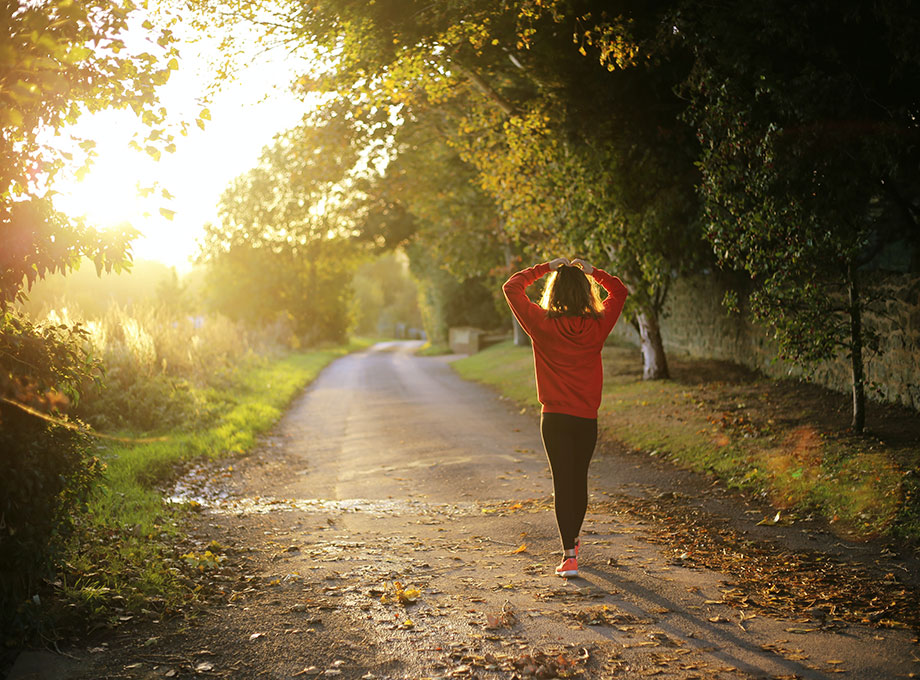Everything we experience impacts our mental wellbeing. When we work out, or when someone tells us they love us, a chemical is produced and sends hormones to our brain (in these scenarios ‘happy hormones’ which makes us feel good).
On the contrary, those that suffer from anxiety or mental health issues may have trouble achieving a state of happiness. The distortion of reality or chemical imbalance makes it extremely hard to think clearly.
Anxiety & Depression
Anxiety causes the fight or flight response to be engaged excessively. It makes you feel unsafe and occurs in many forms but is commonly associated with worrying or overthinking. Our safety is under real threat (emotionally and physically) by coronavirus and thus this may lead to serious damage if left untreated.
Depression is a common illness that severely limits psychosocial functioning and diminishes quality of life. As with most conditions, depression can be mild or severe and often fluctuates depending on circumstances. Levels of depression in the UK have almost doubled during the course of the coronavirus (COVID-19) pandemic (The Times, 2020).
Coronavirus (COVID-19)
The beginning of 2020 has certainly made history. Among everything that has happened across the world – one traumatic event involving the spread of a virus has impacted the entire world, either directly or inveterately.
Coronavirus (COVID-19) is an infectious disease spread primarily through droplets of saliva or discharge. COVID-19 affects different people in different ways and most infected people will develop mild to moderate illness and recover without hospitalisation (WHO, 2020b). The mass spread of this disease has caused a global pandemic, economy recessions, and caused lockdown for many countries.
Physical contact has become potentially dangerous, support groups and classes have been forced to close, even socialising is a health risk (UKCP, 2020b)
Source: (WHO, 2020a)
Due to the nature of the virus limitation have been put in place to prevent the spread of disease involving social distancing, wearing face masks, restricted gatherings and many more.
Taking care of your mental health through Covid-19 is extremely important. Simple amendments to your lifestyle can make a big positive difference. Psychotherapy can also help you connect with and process these feelings in a safe and supportive environment (UKCP, 2020a).
Impact of COVID-19 on Mental Health
- Isolation; feeling alone
- Job loss; furlough and/or redundancy
- Uncertainty; forced change and unknown
- Fear; overthinking and health concerns
- Bereavement; a loss of a loved one
Tips for keeping calm
- Exercise; Keeping physically active keeps your mind and body in shape. When our body feels safe our thoughts will too plus endorphins (happy hormones) are released when we workout.
- Seek Support; Changing the way we label our thoughts is a powerful technique. This can be achieved through Psychotherapy and counselling.
- Improve communications; Find a means to connect with people be it friends, family, or members of your community. A walk or a simple conversation even if only passing can help us feel a part of a supportive group.
- Awareness; Be present and awake to appreciate the little things. Know that this hurdle will pass and with every raincloud will eventually come sunshine.
- Routine; Establishing stability in the form of a routine can ensure meaning and purpose.
Fear is infectious. A negative story shared can negatively affect your thoughts and feelings. Our brains are programmed to survive, and as a result these concerning issues play off our intrinsic instincts. Learn to focus your mind on other matters and spread happiness.
For up-to-date advice and guidance follow government guidelines.
GOV.UK/COVID-19
Seek Online Psychotherapy Help. Contact one of our friendly team on +44 2074934488
References:
The Times (2020) Number of depressed adults doubles since coronavirus pandemic started. Available at: https://www.thetimes.co.uk/past-six-days/2020-08-18/news/number-of-depressed-adults-doubles-since-coronavirus-pandemic-started-pxq8bmvtg
UKCP (2020a) What is psychotherapy. Available at: https://www.psychotherapy.org.uk/what-is-psychotherapy/
WHO (2020a) WHO Coronavirus Disease (COVID-19) Dashboard. Available at: https://covid19.who.int/
WHO (2020b) Coronavirus. Available at: https://www.who.int/health-topics/coronavirus#tab=tab_1


